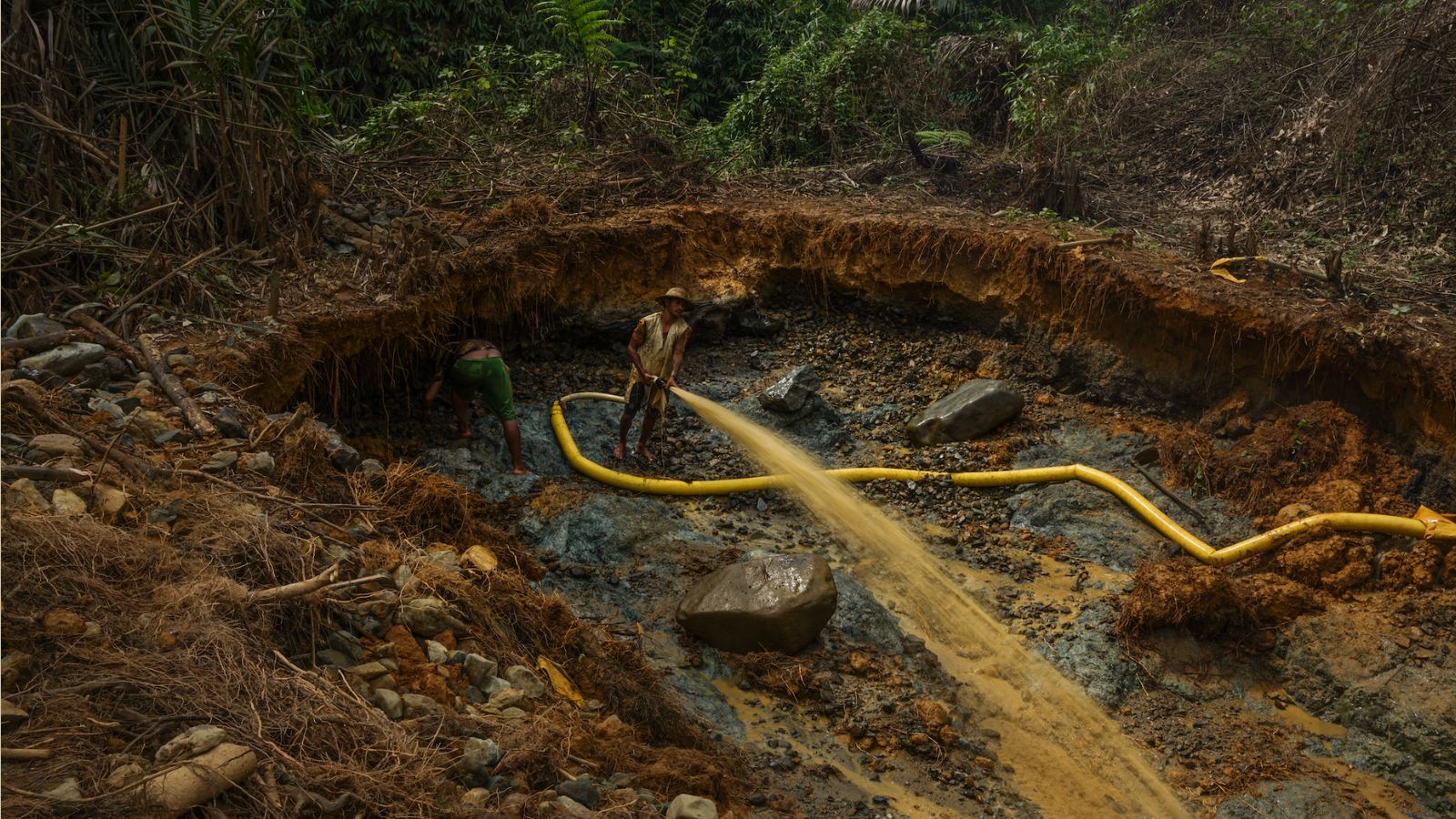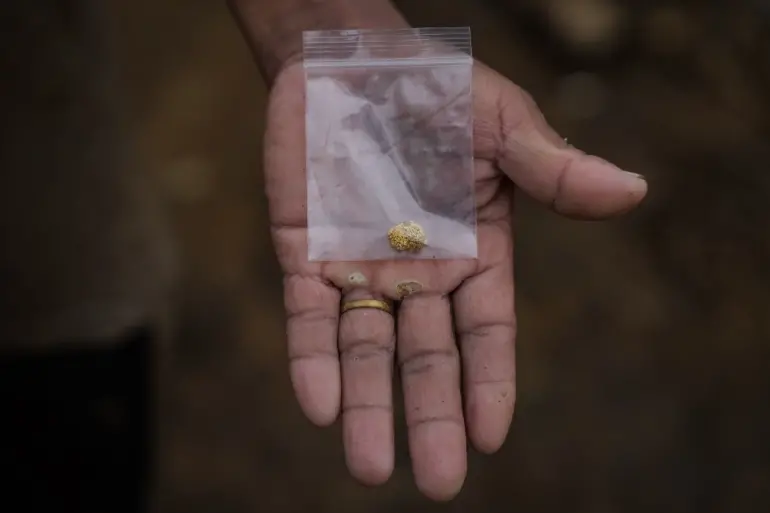
A political crisis triggered by the military takeover makes life even more dangerous for those fighting to protect the environment.
Htu Seng has spent the past decade defending the land and environment of her native Kachin State but it was only after the military seized power in a coup in February 2021 that she began fearing for her life.
Forcibly relocated from her village near the river confluence known as Myitsone in 2011, to make way for a China-backed hydropower project that was suspended months later, she has since been at the forefront of efforts to ensure the multibillion-dollar project does not resume.
Over the past year and a half, however, the issue has been eclipsed by a more immediate threat: gold mining. The industry has cleared trees, eroded land and riverbanks, and polluted waterways with sediment and mercury across Myanmar’s north for the past two decades. Since the military coup, however, gold mining has reached unprecedented levels, local activists say.
At Myitsone, which forms the start of Myanmar’s longest river, the Ayeyarwady, the transformation of the landscape has been stark. But while the planned hydropower project was met with the largest environmental protest movement in Myanmar’s modern history, Htu Seng is one of just a handful of people who have dared to speak out against gold mining at the same location.
They appealed to both the military and the Kachin Independence Organisation (KIO), which is fighting for autonomy and has also joined the country’s broader anti-coup movement, to order a halt to the mining. They have also released public statements, given media interviews, and met local Christian leaders and other influential groups.
But the mining has continued and their activism has placed them in direct confrontation with the business interests of one of Kachin’s most prominent families, which has long benefitted from its ties to both the military and KIO to gain large concessions in logging and jade mining.
So last December, when Htu Seng’s children discovered an anonymous letter in front of their house warning her to be careful and stop spreading “false information”, the message was clear.

While Htu Seng does not know who sent the threat, she has since been moving from place to place and reduced her public profile – Htu Seng is a pseudonym.
Still, she refuses to back down. “I have to be afraid of everyone right now,” she said. “But if I stop speaking out due to fear, our home and land might disappear…That’s why I continue.”
The coup, ensuing military crackdowns and raging civil war have led to thousands of deaths and left more than a million people displaced. But a quieter crisis is also taking place as a collapsing formal economy, crumbling rule of law and the proliferation of conflict create the perfect conditions for the further exploitation of Myanmar’s natural resources – not just gold but also rare-earth elements, jade and wildlife.
These industries were already weakly-regulated before the coup and mostly operated through illicit channels. Now, even the legality of existing permits or authority to enforce the law are in question while the National Unity Government – Myanmar’s anti-coup administration – seeks international recognition as the country’s legitimate government and on the ground, armed resistance groups fight the military for territorial control.
The resource grab could have dire implications in a country that holds some of Southeast Asia’s largest intact forests and ecosystems and is ranked among the world’s most vulnerable and least-prepared for the impacts of climate change. It also further threatens the livelihoods and ancestral lands of a population that is nearly 70 percent rural.
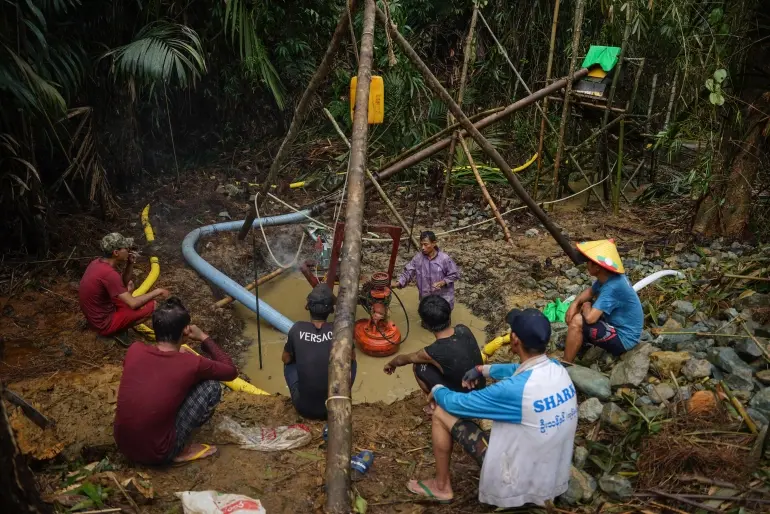
At a time when the country’s land, water and biodiversity are under immense strain, it is becoming increasingly difficult to monitor environmental corruption or stand up to vested business interests.
“The military coup has had devastating consequences for Myanmar’s natural environment and those seeking to defend it,” said Hanna Hindstrom, a senior campaigner with the environmental investigation and advocacy group Global Witness.
“Those brave enough to speak up against these injustices face the threat of violence and arrest. The plunder of Myanmar’s bountiful resources risks being normalised and forgotten as the country is dragged into prolonged conflict and chaos.”
Nature in peril
From its snow-capped mountains to its river deltas, grasslands and coastal areas, Myanmar is habitat to more than 3,000 plant and animal species, including hundreds that are globally threatened, some of which are also endemic.
Even before the coup, this biodiversity was in peril.
A conservation assessment published in 2020 by the University of New South Wales, Australia, in association with the Wildlife Conservation Society and Myanmar’s former civilian government, found that nearly half of the 64 ecosystems studied were under threat, while one had already collapsed.
The coup and the spread of armed conflict, however, opened the floodgates for those with money and connections to scale up their activities, while at the other end of the socioeconomic spectrum, the disruptions of war and rising commodity prices have pushed even more people to try their luck in the resource industries or sell their land to mining companies.
The All Burma Indigenous Peoples’ Alliance, a group of more than 40 civil society organisations, highlighted an accelerating cycle of environmental and social damage in a recent report.
“Where businessmen and authorities engage in the theft and plunder of locally managed resources, they often divide communities and incentivise local people to participate in the destruction and sale of their homelands,” it said.
Kachin, which shares a border with China’s Yunnan province, holds Myanmar’s greatest concentration of resource wealth and has also seen intermittent conflict between the military and KIO since the 1960s.
Resources have been central to this conflict, with both sides fighting for access and looking to jade, timber, amber and gold for funds. Meanwhile, the illicit extraction of rare-earth elements has boomed over the past decade in border areas under the control of an armed group aligned with the military.
Since the coup, the opportunities for those with power and influence to make money have only increased.
The military’s own Minister of Natural Resources and Environmental Conservation –sanctioned by the United States government in May 2021 – has a long record of “directly profit[ing] from the selling of the country’s natural resources”, according to a statement by the Environmental Investigations Agency, an international non-profit. The military’s business entities have also been sanctioned but have nonetheless continued to make money from extractive industries, including jade and timber.
In Kachin, the military, armed groups aligned with it and those fighting against it all continue to tax resource-related companies, with opposing groups even taxing the same businesses in areas where control remains contested, according to interviews conducted over the past year with local environmental activists, civil society workers and people involved in or affected by resource economies.
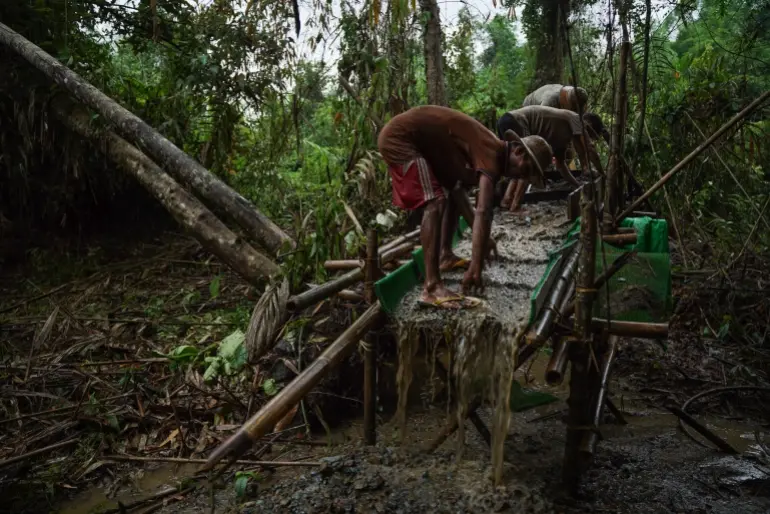
And even though China has erected border fences and strictly limited the entry of people and goods from Myanmar since 2020 in the name of COVID-19 prevention, these sources say the illicit movement of resources and businesspeople across the China border continues unabated.
“Chinese people are buying and trading our natural resources, wildlife and plants and carrying them across the border,” said Ningrang Uma, a Kachin environmental activist who requested the use of his nickname. “It is very difficult for us to transport commodities which we need like rice, oil and medicine, but [the military] allows Chinese people freely in and out.”
In addition to corruption, he blamed a lack of political will from those in positions of authority, whether the military or resistance groups.
“The natural environment is our lifeblood, so if the government wants to protect the people, they should protect the environment,” he said. “When we have no [effective] laws or policies, China can simply destroy our country.”
Dangers
Indigenous people play a vital role in biodiversity conservation and climate change mitigation but are disproportionately affected by the adverse consequences of environmental degradation and global warming, according to the United Nations Environment Programme (UNEP), which is organising the ongoing global biodiversity conference in Montreal, known as COP15.
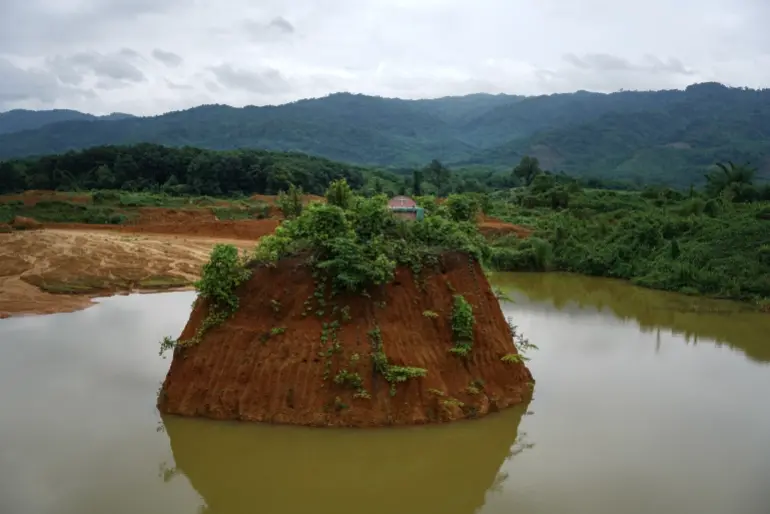
Indigenous people are also much more likely to be targeted for their activism.
According to a report by Global Witness, they accounted for more than 40 percent of the 200 land and environmental defenders murdered in 2021, even though they make up only 5 percent of the world’s population.
In Montreal, delegates from around the world are working to agree on a new ten-year framework to halt and reverse nature loss, one that “safeguards the rights of indigenous peoples and recognizes their contributions as stewards of nature,” according to the UNEP’s website.
The All Burma Indigenous Peoples’ Alliance, which has sent delegates to the conference, highlighted the threats the coup poses to biodiversity and environmental defenders in a recent press release and called for the inclusion of Indigenous people in place of authoritarian regimes in global environmental policymaking.
“Where nation-states are environmental destroyers … international mechanisms must recognize the considerable efforts that Indigenous communities have made, supporting their efforts rather than the plans of central governments,” it said.
Al Jazeera’s interviews with Kachin people living in rural areas highlight a range of threats to their land, livelihoods and lives as a result of the coup.
“Businesspeople turned to gold mining with heavy machinery and didn’t even consider conserving our forest,” said an environmental activist in the state’s mountainous Putao region, who spoke on the condition of anonymity due to safety concerns. “It has gotten harder to do environmental activism since the coup. We face threats from businesspeople who only care about their interests.”
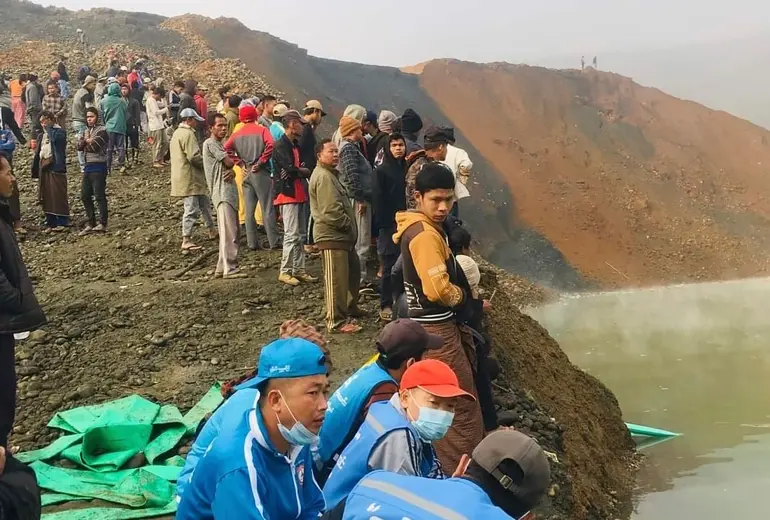
In Sumpra Bum, another remote and mountainous area, Ningrang Uma also described a dire situation.
“Locals depend on nature, forests and rivers for their subsistence and livelihoods and know how to protect the environment,” he said. “When gold mining companies come, they cut down trees and the rivers and streams become opaque. When the water is opaque and poisoned, fish die and it impacts locals’ livelihoods.”
He had just begun connecting with other environmental defenders across the state when the coup happened. He now fears arrest as well as retaliatory attacks from anyone who feels their financial interests are threatened by his efforts to expose and stop their activities. “As environmental activists, we really need to be careful,” he said. “Right now, we are afraid of the nearest gun.”
With the military and KIO both benefitting financially from the resources of the industries they regulate, he also feels he has nowhere to turn. Still, he is travelling from village to village to raise awareness about the importance of environmental conservation and is covertly monitoring gold mining in his area. “Activists and locals aren’t able to speak out loudly, but we still have to find a way to protest,” he said.
‘We have to step up’
Joseph, the nickname for a civil society worker in Kachin State’s Hukawng Valley, has taken a more cautious approach but not for a lack of concern. The valley is a habitat to globally threatened species including Asian elephants, tigers and hornbills but two decades of gold mining have left their mark.
As in other areas, gold mining in the Hukawng valley has only accelerated since the coup. “The water used to be very clean and you could even drink it without a filter, but now it is thick and yellow,” Joseph said. “I don’t think fish could even survive in this water pollution … You just understand it is a river, but it can do nothing. It is useless now.”
As one of few active environmentalists in the area, however, he said he felt the risks were too high to openly resist the mining. Instead, he organises rubbish cleanup events, dialogue sessions and workshops for local youth on the value of preserving nature. “If we do this kind of thing, [the military and KIO] won’t see it as an attack on their business,” he said. “I can just say, ‘We should protect the environment’, but for deep issues, I don’t think I can go there.”
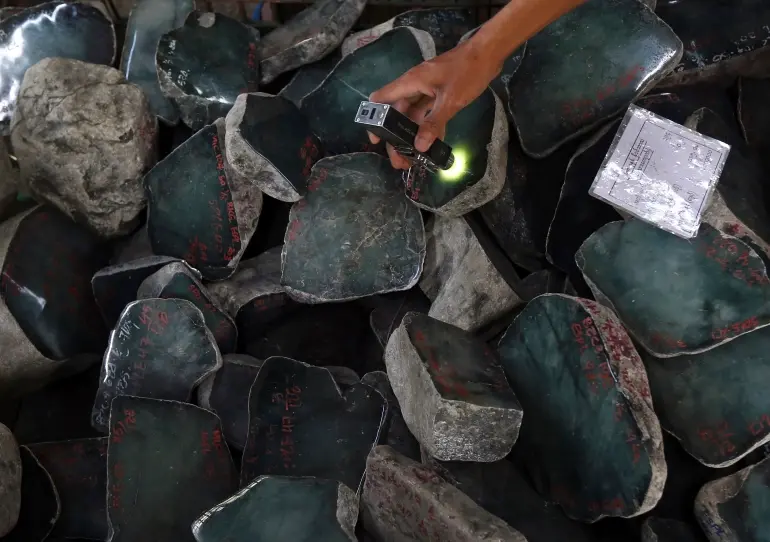
He has also refrained from activism because he doubts the military or KIO would effectively respond. “If we do advocacy about mining and the forest, I don’t think they will change or listen, because this is their treasure. It is not our treasure,” he said.
But unwilling to accept the further destruction of the land, water and ecosystems that have sustained his community for generations, he says he feels a responsibility to continue doing what he can despite the enormous risks.
“It is the government’s job, not my job, to protect or satisfy the people’s needs. But the government isn’t doing anything for the people, so we have to step up.”
This article was supported by the Pulitzer Center Rainforest Journalism Fund and is part of a series of articles about the coup’s impact on natural resource economies in Kachin State.



